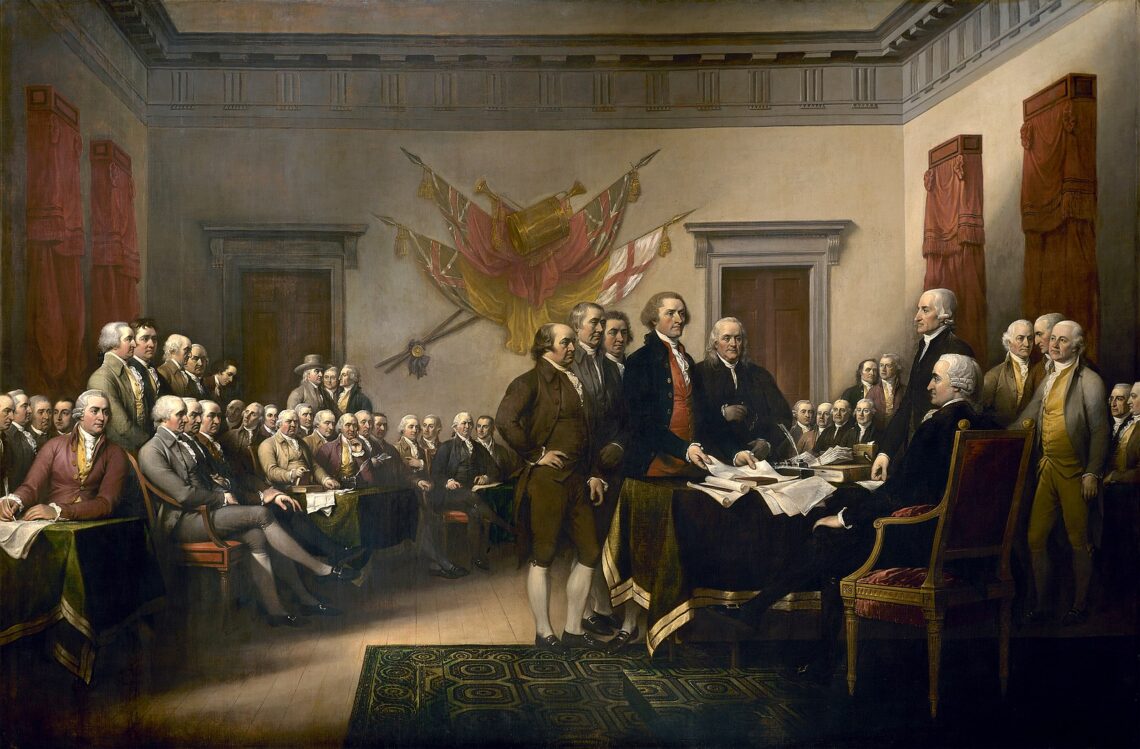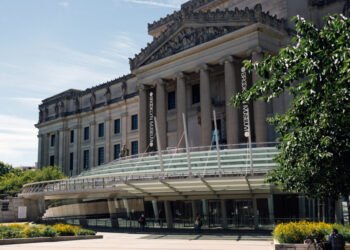The signing of the Declaration of independence by John Trumbull. Photo courtesy of Wikimedia Commons, licensed under the Wikimedia Commons License
In the winter of 1789, around the time George Washington was elected the country’s first president, a Boston-based printer quietly launched another American institution.
William Hill Brown’s “The Power of Sympathy,” published anonymously by Isaiah Thomas & Company, is widely cited as something momentous: the first American novel.
Around 100 pages long, Brown’s narrative tells of two young New Englanders whose love affair abruptly and tragically ends when they learn a shocking secret that makes their relationship unbearable. The dedication page, addressed to the “Young Ladies of United Columbia” (the United States), promised an exposé of “the Fatal consequences of Seduction” and a prescription for the “Economy of Human Life.”
Outside of Boston society, though, few would have known or cared whether “The Power of Sympathy” marked any kind of literary milestone.
“If you picked 10 random citizens, I doubt it would have mattered to any of them,” says David Lawrimore, an associate professor of English at the University of Idaho who has written often about early U.S. literature. “Most people weren’t thinking about the first American novel.”
What the first American novel was like
Subtitled “The Triumph of Nature. Founded in Truth,” Brown’s book is in many ways characteristic of the era, whether its epistolary format, its Anglicized prose, its unidentified author, or its pious message. But “The Power of Sympathy” also includes themes that reflected the aspirations and anxieties of a young country and still resonate now.
Dana McClain, an assistant professor of English at Holy Family University, notes that Brown…
Read the full article here








